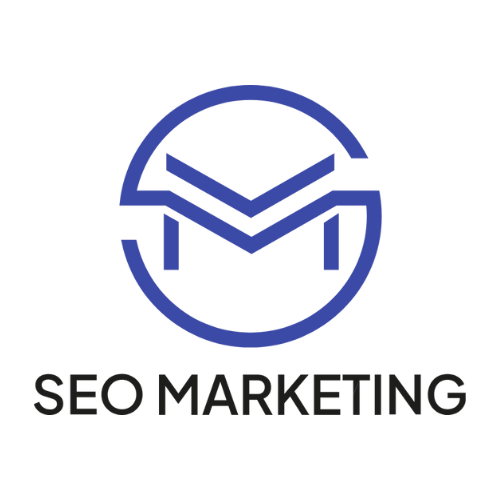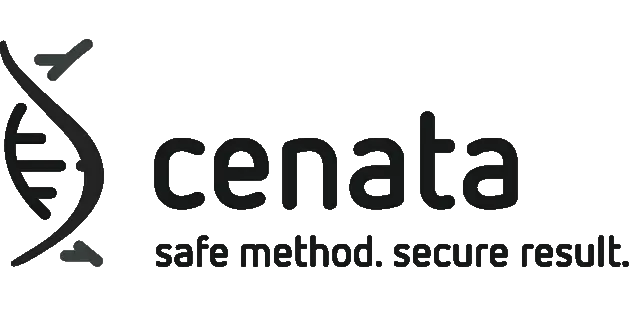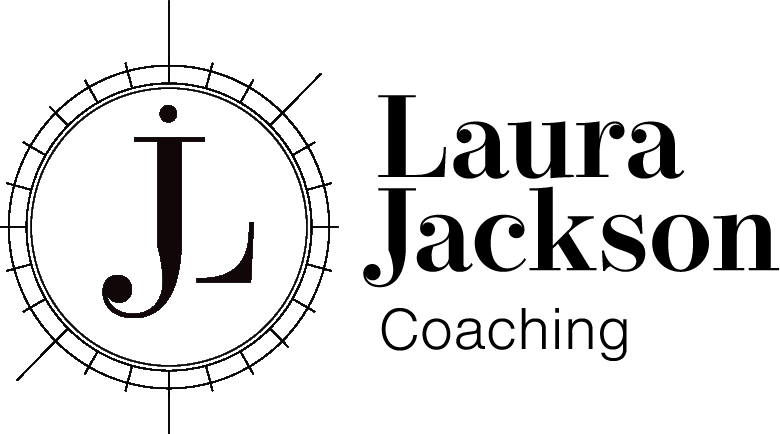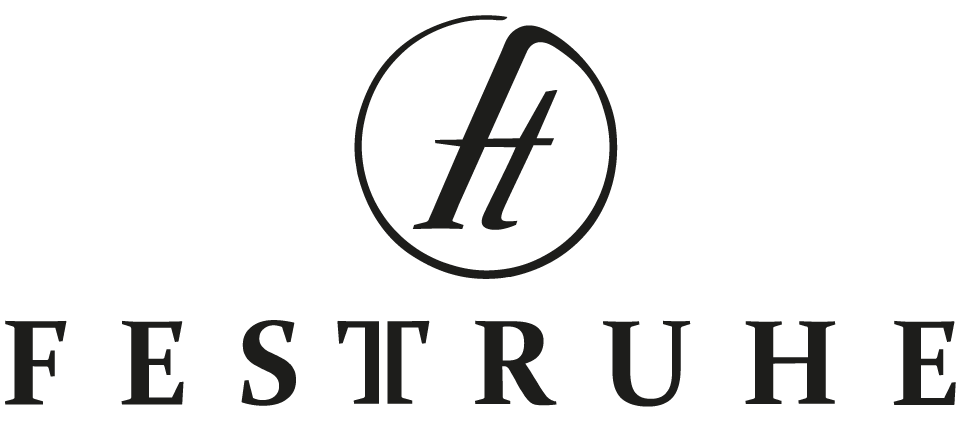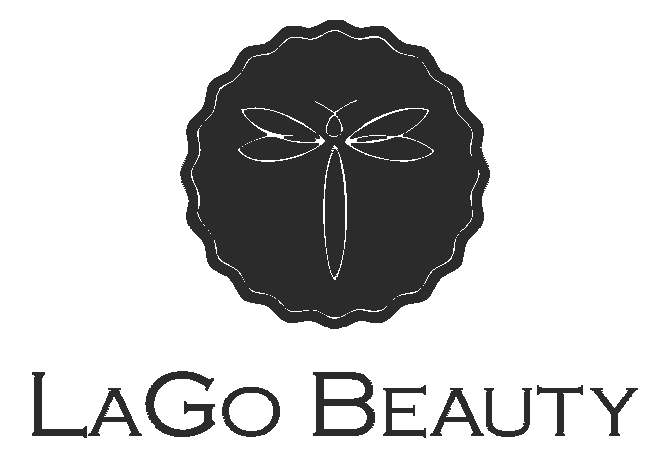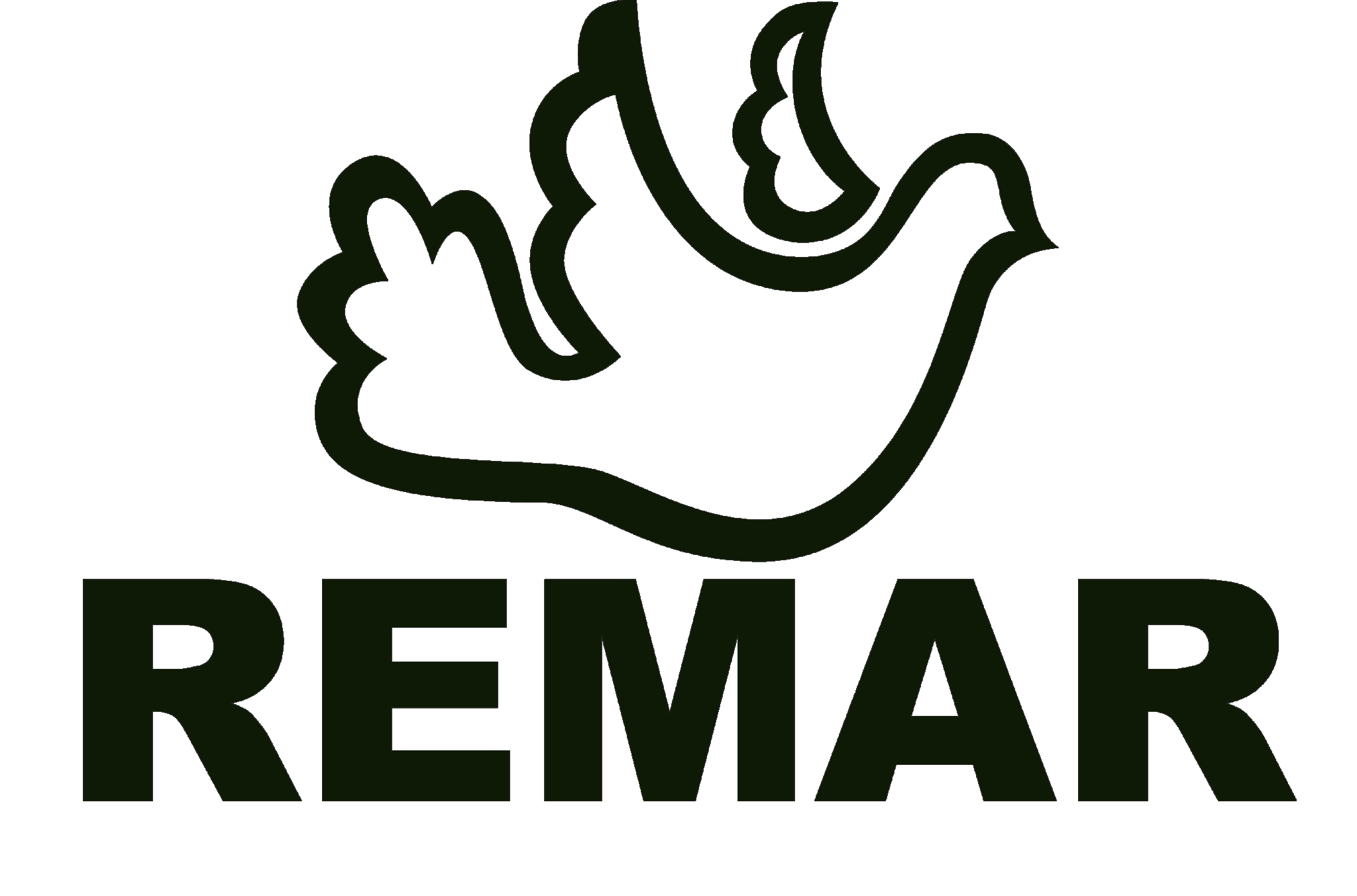SEO – Web design – Google Ads – Social media
SEO agency: Your partner for the No. 1 on Google
Our strategy for more visibility, qualified leads and sustainable growth in Germany.
Individual marketing solutions
AI SEO
With AI, you get intelligent suggestions, data-based insights and automated SEO optimization.
Local SEO
We increase your local visibility, strengthen your presence on Google and gain new regular customers.
Onpage SEO
We optimize the structure, content and technology of your site for maximum performance and top rankings.
Content Marketing
With targeted content, we strengthen your brand, increase visibility and attract qualified customers.
Google My Business
We optimize your profile on Google, increase your local reach and ensure more inquiries.
International SEO
We bring your website to the forefront worldwide with smart SEO and secure top rankings in all markets.
Recruiting
We combine SEO with recruiting to target top talent and strengthen your company in the long term.
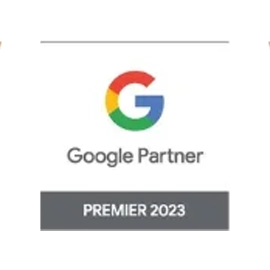

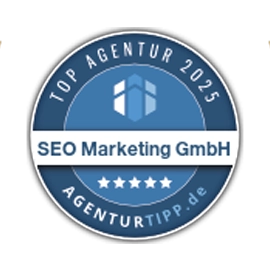
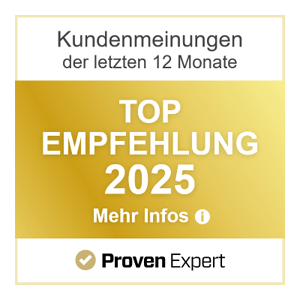
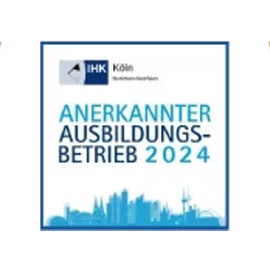
SEO Agency: Your partner for sustainable visibility on Google
Do you have an excellent company, but potential customers only ever find your competitors on Google? This is a common problem: many companies invest in a good website, but remain invisible in the huge range of offers on the Internet. Every search where you don’t appear on the first page is a lost business opportunity – and a new customer for your competitors.
This is exactly where we as your SEO agency we start. Search engine optimization (SEO) is not a technical trick, but a strategic process. As an experienced agency for search engine optimization we develop a customized plan to not only get you found, but to establish you as a leading and trusted provider in your industry.






Become the answer to your customers’ questions
Being at the top of Google’s rankings means more than just a lot of traffic. It means being rated by Google as the most relevant and best answer to a user’s search query. If you win this trust, you also win the customer. It’s about being present at the exact moment someone is actively searching for your solution.
Our job as an agency for SEO is to optimize your website technically, in terms of content and quality so that it is equally convincing for search engines and users. Our SEO experts ensure that all relevant signals are correct so that Google displays your company as a top result and potential customers enquire with you – not with others.
SEO is not an expense – it’s building a valuable channel
Many entrepreneurs ask themselves whether it is worth investing in SEO. The answer is a resounding yes. Unlike paid ads (Google Ads), where visibility ends as soon as you stop paying, with SEO you build a sustainable and dedicated channel. Good rankings are a company asset that continuously generates qualified inquiries for you in the long term.
Attract customers who are actively looking for you:
With the right SEO services you don’t reach random visitors, but people with a specific need and a high purchase intent. We make sure that you are found for the search terms that potential customers use to solve a problem. Every click is therefore a real business opportunity that makes your sales processes more efficient.
Be recognized as an expert in your industry:
A top ranking in the organic search results acts like a direct recommendation from Google. Users trust these results much more than paid advertisements. If your company appears prominently there, you are automatically perceived as a relevant and credible provider. This digital authority strengthens your brand in the long term.
Become more independent of paid advertising:
Every measure within the scope of our SEO consulting flows directly into strengthening your own website. You build a channel that belongs to you and works continuously for you. This makes you less dependent on rising advertising prices in the long term and ensures a constant stream of new potential customers – a solid basis for predictable growth.
Analyze your website for free – more visibility now!
Have your website analyzed free of charge and discover optimization potential immediately. Get a quick SEO check with clear tips for better rankings, more visibility and more customers - free of charge, professionally and without obligation.
Our process: clear, transparent and focused on results
Successful search engine optimization is the result of a structured and proven process. We guide you through each phase and make our work comprehensible for you.
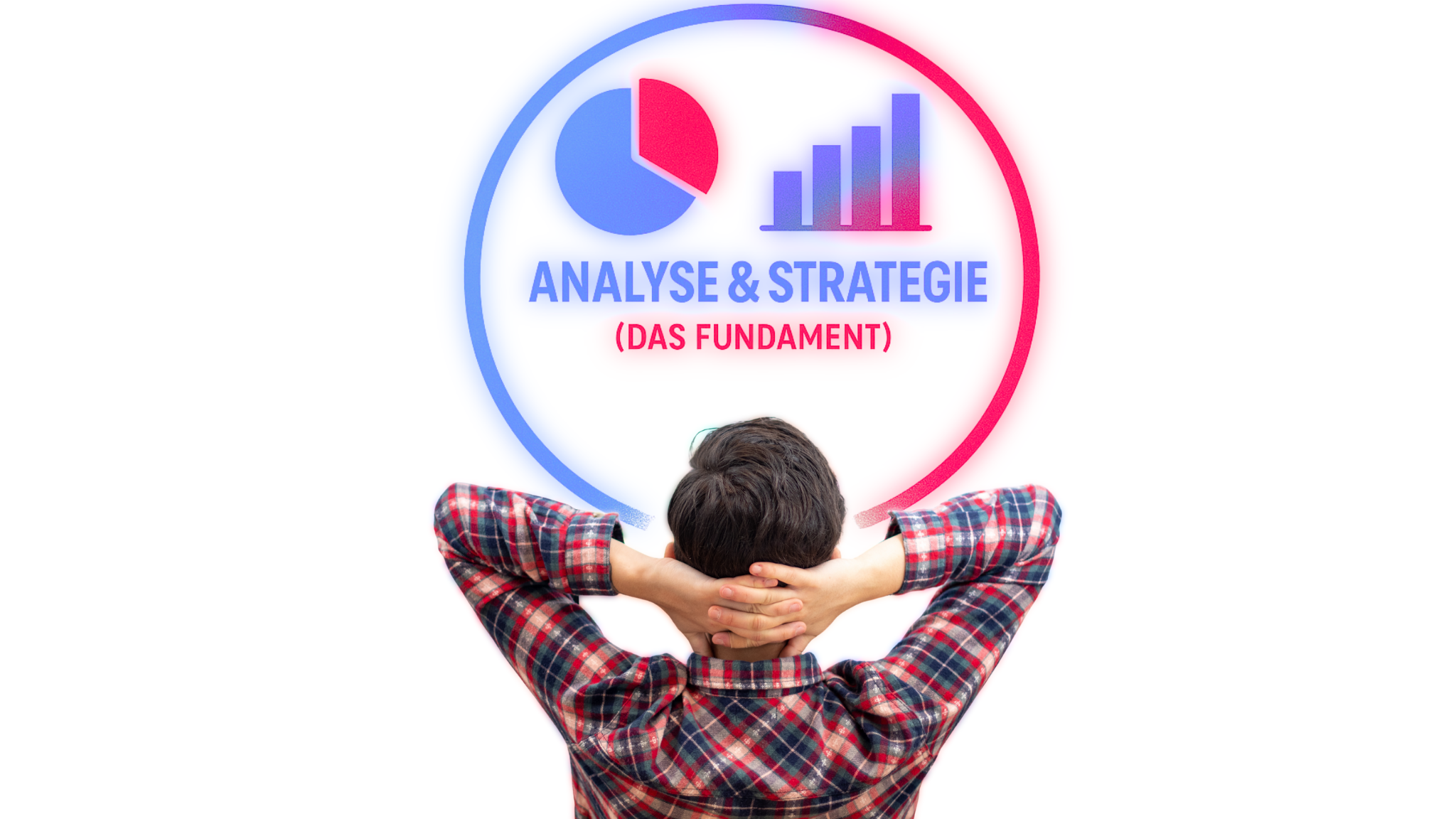
Analysis & Strategy (The foundation):
We start with an in-depth SEO analysis of your website and your strongest competitors. On this basis, we develop a customized strategy, define realistic goals and determine the most important keywords that will bring you the most valuable customers.

Technical optimization (the basis):
Our experts ensure that your website is technically flawless. This includes optimizing loading times, improving the mobile display and fixing any errors that could negatively affect your Google ranking.


Content & on-page optimization (the added value):
We optimize your existing content and, if necessary, create new, high-quality texts that both appeal to your target group and are relevant for search engines. Each page is targeted to the appropriate search terms.

Link building & authority (The trust):
We strengthen the authority of your website through strategic and sustainable link building. High-quality links from other relevant pages are a strong signal for Google that your website is trustworthy and relevant.

Are you ready to really be found on Google?
Stop losing potential customers to your better-placed competitors. A professional SEO strategy is the most direct route to more qualified inquiries and sustainable growth.
Let us find out what untapped potential your website has in a free initial consultation.
Frequently asked questions (FAQ)
What does SEO cost per month?
The monthly cost of SEO depends on several factors, such as the competition in your industry, your goals and the current state of your website. A reputable SEO company does not offer fixed package prices, as each strategy must be individual. After an initial free potential analysis, you will receive a transparent offer from us that is tailored to your specific needs. Think of it as an investment that will pay off in the long term through more customer inquiries.
How long does it take to get to page 1 on Google?
SEO is a long-term strategy, not a short-term tactic. The first positive developments in rankings are often already visible after 3 to 4 months. However, to achieve stable top rankings for highly competitive keywords, you should realistically expect a period of 6 to 12 months. Quick, dubious promises often lead to penalties from Google. We rely on sustainable methods for long-term success.
What is the difference between SEO and SEA?
SEO (Search Engine Optimization) aims to rank your website as high as possible in Google’s unpaid, organic search results. This is a sustainable process that builds trust. SEA (Search Engine Advertising), such as Google Ads, are the paid ads that appear above the organic results. They bring instant visibility, but only as long as you pay for them. A good online marketing strategy often combines both disciplines.
Can't I just do SEO myself?
The basics of SEO can be learned. However, in-depth specialist knowledge, experience and special tools are required for professional implementation that leads to real competitive advantages. Search engine optimization is very time-consuming and Google’s algorithms are constantly changing. A professional SEO agency not only saves you time, but also protects you from costly mistakes that could damage your ranking.
Learn more
Search engine optimization – SEO Marketing
Did you know that up to 90% of all Google users click on one of the first 6 results? What good are the best services and products if nobody can find them? This is exactly where search engine optimization (SEO) comes in. Search engine optimization adapts your website to the requirements and evaluation criteria of Google, Bing and Co. This ensures that you land among the first search results and receive more customer inquiries. SEO marketing is, as our name suggests, our supreme discipline. Let our team take care of your website and ensure that your services and products reach their maximum potential.
Reach target groups
Through extensive keyword research, the content on your website is ideally adapted to the search queries of your target group. This way, users will find exactly what they are looking for on your website!
Radiate seriousness
Informative blog articles are the ideal complement to holistic SEO support. Not only are they interesting for search engines, they also impress your customers with their expertise!
Turning customers into fans
Even the first place on Google is not much use if visitors immediately disappear from your site! Appealing texts, graphics and content will convince your customers in no time at all!
Analysis
Do you know what your customers are googling? Through keyword research, competitor analysis and the observation of user behavior, nothing is left to chance. Your website is also subjected to a detailed analysis, in which aspects such as the website structure, loading times or user-friendliness are examined – all important aspects for the corresponding Google rating! We then offer you an optimization concept that is individually adapted to your website and your target group. So nothing stands in the way of customer acquisition!
SEO optimization
Based on this concept, our experienced content authors write appealing content that not only meets the criteria of the search engines, but also meets the wishes and requirements of your customers. At the same time, your website will be optimized so that Google, Bing and other search engines give it a better overall rating. With user-friendly interfaces, error-free programming and exciting, SEO-optimized texts, your website will be a success!
Long-term successes
While search engine advertising offers short-term success, SEO is the long-term alternative. Through constant analysis and adjustments, your website is regularly examined for changes in user behavior and search engine criteria. If there is a need for action, your site will be optimized and adapted immediately. In this way, your online presence grows sustainably and reaches more customers in the long term. And regular evaluations and reports keep you up to date at all times!
Your SEO optimization
- Individual strategies, through keywords, competitor analyses and more
- Stand out from the crowd thanks to SEO
- Inspire customers with appealing texts
- Achieving long-term success
Holistic marketing support
- Detailed marketing
advice - Holistic strategies for your company
- Long-term successes
- One contact for all concerns
What is SEO?
SEO, also known as search engine optimization, is an essential part of a successful online presence. It encompasses a variety of strategies and techniques aimed at improving the visibility of a website in the organic search results of search engines. Organic search results are the entries on a search results page that are not characterized by paid advertising.
The basic idea behind SEO is to increase the relevance of a website for certain search queries so that it is seen as more relevant and of higher quality by search engines such as Google, Bing and Yahoo. When a website is ranked higher in search results, users are more likely to visit it, which in turn leads to more traffic and potentially more conversions.
In order to develop an effective SEO strategy, it is important to consider various aspects. One of the basic steps is keyword research, which involves identifying relevant keywords that users are searching for. These keywords are then strategically integrated into the content of the website to signal its relevance to these search queries.
On-page optimization refers to the optimization of elements on the website itself, such as meta tags, headings, content and internal linking. By optimizing these elements, the search engine friendliness of the website can be improved, which in turn can lead to a better ranking in the search results.
Off-page optimization focuses on external factors, in particular building backlinks from other websites to your own website. Backlinks are considered a kind of “voice of authority” for a website and can help to strengthen its reputation and credibility in the eyes of search engines.
Technical aspects such as website speed, mobile-friendliness and overall user experience also play an important role in SEO. Search engines prefer websites that load quickly and offer intuitive navigation, as this leads to a better user experience.
In summary, SEO is an ongoing process that requires continuous adjustments and optimization. By implementing a holistic SEO strategy, companies can improve their online visibility, generate more qualified traffic and ultimately boost their business growth.
How much does SEO cost?
The cost of SEO can vary greatly depending on various factors. First of all, the price depends on the type of SEO service that is needed. Some companies may only need basic optimization of their website, while others may require more extensive services such as content creation, backlink building and ongoing monitoring and adjustment.
On the other hand, the costs can also depend on the size and complexity of the website. Larger websites with many pages and a complex structure often require more time and resources for optimization than smaller websites.
Another important factor is the competitive situation in the industry. In highly competitive industries, it can be more difficult and time-consuming to achieve good rankings in search results, which can have an impact on costs.
The geographical location of the company can also have an impact on costs. In some regions or countries, the cost of living is higher, which can affect the price of SEO services.
The experience and reputation of the SEO agency are also important factors in pricing. Agencies with a proven track record and an established reputation can tend to charge higher prices than less experienced providers.
There are also different models for pricing SEO services. Some agencies work on an hourly basis and charge a fixed hourly rate for their services. Others offer flat rates for specific SEO packages, while still others work with monthly retainer contracts where clients pay a monthly fee to receive ongoing SEO services.
It is important to note that SEO is a long-term investment and takes time to achieve results. Companies should therefore not only consider the immediate costs, but also the long-term benefits and potential returns on their SEO investment.
Ultimately, it is advisable to obtain several quotes, compare services and prices and choose an SEO agency that is not only affordable but also has the experience and expertise to achieve the desired results.
When will the successes be visible?
The visibility of successes related to SEO is a topic of great importance and often highly regarded by companies and website operators. Understandably, they want to know when they can expect to see measurable improvements after investing in SEO. However, making an accurate prediction about when the results will be visible is a complex matter, as many variables play a role.
A decisive factor is the current state of the website. If a website already has a solid basis of SEO measures and has good rankings in the search results, improvements may be recognizable more quickly. In such cases, targeted adjustments and optimizations can often have a positive impact in a short period of time. On the other hand, a website that has had little or no SEO measures to date may take longer to see measurable progress.
Fundamental structural changes may need to be made here before the effects of SEO are really noticeable.
Another decisive factor is the competitive environment. In highly competitive industries, where many companies are competing for the same keywords and target groups, it can take longer to achieve significant improvements in rankings. The time it takes to beat the competition can therefore vary. In such cases, patience and continuous improvement of the SEO strategy is required to achieve long-term success.
The scope of the measures implemented also plays an important role. The effectiveness of SEO measures depends on how comprehensively and strategically they are implemented. A well-planned and implemented SEO strategy tends to deliver results faster than ad-hoc measures. It is important that SEO efforts are continuously monitored and adjusted to meet the ever-changing requirements of search engine algorithms and to stay up to date.
Google algorithm updates can also influence the results. Google’s search algorithms are regularly updated, which can affect the rankings of websites in the search results. Sometimes these updates can cause a website’s rankings to deteriorate in the short term before improving again. It is therefore important that SEO strategies are flexible enough to respond to these changes.
In general, companies should expect it to take a few weeks to months for the effects of SEO measures to become visible. In the first few weeks after implementing SEO, some positive changes such as improved indexing by search engines or an increase in organic traffic can be observed. However, long-term successes, such as a significant improvement in rankings for important keywords and an increase in organic traffic, can take more time. SEO is a continuous effort, and ongoing monitoring, adjustment and optimization of the strategy is critical to achieving and maintaining long-term success.
Introduction to search engine optimization (SEO)
Search engine optimization, better known as SEO, is one of the pillars of digital marketing and plays a crucial role in the online presence of companies and brands. SEO encompasses a wide range of strategies and techniques aimed at making a website more visible in search engine results. The core idea behind SEO is simple: to achieve a higher ranking in the search engine results pages (SERPs), which leads to more website visitors and ultimately increases the chances of conversions.
To fully understand the importance of SEO, you first need to look at how search engines work. Search engines such as Google, Bing and Yahoo use complex algorithms to search, index and rank content on the internet. These processes enable search engines to deliver the most relevant and highest quality results to users’ search queries. The algorithm evaluates websites based on hundreds of factors, including keywords, user experience, page load speed and inbound links.
Keywords play a central role in the SEO strategy. They are the terms and phrases that users type into search engines. By optimizing a website for relevant keywords, brands can ensure that their content is found by the right audiences. This requires careful research to understand what potential customers are searching for and creating content that answers these queries effectively.
In addition to keywords, the user experience (UX) and the technical performance of the website are decisive SEO factors. Search engines prefer websites that load quickly, work well on mobile devices and offer an intuitive user interface. This not only improves visibility in search results, but also encourages positive interactions with website visitors.
Inbound links, also known as backlinks, are another important element of SEO. They signal to search engines that other websites consider the content to be valuable, which increases the credibility and authority of a website.
To summarize, SEO is a crucial component for success in the digital space. By optimizing a website according to search engine criteria, companies can increase their visibility, gain more qualified traffic and ultimately achieve their business goals. With search engine algorithms constantly evolving, it is imperative for brands to continuously educate themselves on SEO practices and adjust their strategies accordingly.
Basics of on-page SEO
The optimization of elements on a website, known as on-page SEO, is a decisive factor in improving the visibility and ranking of a website in search results. The core aspects of on-page SEO include the optimization of title tags, meta descriptions and the adaptation of content in terms of keywords, readability and structure.
Title tags and meta descriptions are crucial components of a website that not only help search engines but also users to understand the content of a page. A title tag is the text that is displayed in the browser tab and in the search results as the heading of the page. It should precisely reflect the topic of the page and contain the main keyword for which the page should rank. An effective title tag is often the key to getting users to click on a search result.
Meta descriptions provide a brief summary of what visitors can expect on the page and are displayed under the title tag in the search results. Although meta descriptions do not directly influence rankings, they play an important role in increasing click-through rate (CTR). A well-written meta description that contains relevant keywords can persuade users to click on a web page.
Content optimization goes beyond the mere integration of keywords. While it is important that texts contain relevant terms that users use when searching, content must also be well structured and easy to read. This means using headings (H1, H2, H3) to organize content, keeping paragraphs short and using bulleted lists or bullet points to present information clearly. A clear structure not only improves the user experience, but also makes it easier for search engines to crawl and understand the page content.
The integration of internal links is another important aspect of on-page SEO. They help to build a hierarchical information structure and strengthen the link network within the website. This not only improves navigation for users, but also allows search engines to better understand the value and context of pages.
Overall, on-page SEO is a fundamental pillar of search engine optimization that directly influences how both search engines and users perceive and evaluate a website. By carefully optimizing title tags, meta descriptions and content, webmasters can improve their chances of ranking higher in the SERPs and generating more qualified traffic.
The basics of off-page SEO
Off-page SEO refers to all measures taken outside of your own website to improve its ranking in search engine results. These strategies are crucial for building the authority and credibility of a website, positively influencing its visibility and ranking. Two central pillars of off-page SEO are backlinking and the influence of social signals.
Backlinking and its importance for SEO
Backlinks, also known as external links or inbound links, are links from other websites that point to your site. They play a crucial role in SEO, as search engines interpret them as a sign of the quality and relevance of a website. A higher number of high-quality backlinks can lead to a website being ranked higher in the search results.
The quality of the backlinks is more important than the quantity. Links from trustworthy, topic-relevant and authoritative sites have a greater impact on rankings than those from less relevant or low-quality sites. Therefore, effective off-page SEO strategies focus on gaining natural and relevant backlinks, for example by creating high-quality content that other website owners are willing to link to or by guest posting on reputable platforms in the relevant industry.
Social media and SEO: The influence of social signals
Although social signals such as likes, shares and comments are not directly included in the algorithms of most search engines, they still have an indirect influence on SEO rankings. Active presence and engagement on social media platforms can increase the visibility of a brand or website, which in turn can lead to more backlinks and organic traffic.
Social media also promotes the dissemination of content and can help it to be noticed more quickly by a wider audience. This can increase brand awareness and attract additional visitors to the website. In addition, social media provides a platform for building relationships with influencers and other industry players, which in turn can create new opportunities for backlinks and collaborations.
Overall, on-page and off-page SEO complement each other to improve the authority, visibility and ranking of a website in search engine results. While on-page SEO focuses on optimizing your own website, off-page SEO builds on external factors such as backlinks and social signals to increase the reputation and reach of the website.
Technical SEO
Technical SEO is a critical area of search engine optimization that focuses on optimizing a website’s infrastructure to improve crawling and indexing by search engines, as well as providing an optimal user experience. Two of the essential elements of technical SEO are website speed and mobile optimization as well as understanding crawling and indexing.
Website speed and mobile optimization
The loading speed of a website is a crucial factor for the user experience and a well-known ranking factor for search engines. Slow loading times can lead to a higher bounce rate as users are unlikely to be willing to wait for a page to load. Optimizing loading speed can be achieved through various measures, including image optimization, reducing JavaScript and CSS, using browser caching and considering a web hosting provider.
Optimization for mobile devices is also crucial, as the majority of internet usage nowadays is via smartphones and tablets. A mobile-friendly website should have a responsive design that automatically adapts to the screen size of the device being used. Mobile optimization also includes consideration of usability on small screens, fast loading speeds and easy navigation.
Crawling and indexing: How search engines see your site
Crawling refers to the process by which search engines such as Google crawl websites by following links from page to page. Indexing occurs when a crawled page is added to the search engine’s database. To improve crawling and indexing, it is important to have a clear and logical website structure that makes it easier for search engines to find and understand content.
Using sitemaps is an effective way to inform search engines about the structure of your website and make it easier to find new or updated pages. In addition, using the robots.txt file is crucial to tell search engines which areas of the website should not be crawled. This helps to make efficient use of search engine resources and ensure that only relevant pages are indexed.
In summary, technical SEO is fundamental to the success of a website in the digital space. By optimizing website speed and ensuring mobile-friendliness, a website can provide a better user experience while improving its visibility in search results. A deep understanding of crawling and indexing allows website owners to ensure that their content can be easily found and correctly indexed by search engines, resulting in better performance in the SERPs.
Keyword research and analysis
Keyword research and analysis are fundamental aspects of search engine optimization (SEO) that lay the foundation for a successful content strategy. They help to understand what information or solutions users are looking for and allow content to be optimized accordingly to meet their needs and improve visibility in search results. Choosing the right keywords is crucial to targeting the right audience and increasing organic traffic.
Tools and techniques for identifying effective keywords
There are a variety of tools and techniques to help with keyword research and analysis. Some of the most popular include Google Keyword Planner, SEMrush, Ahrefs and Moz Keyword Explorer. These tools provide comprehensive data on search volume, competition, relevant search queries and more. They allow marketers to identify potentially valuable keywords that fit their target audience and business goals.
In addition to using SEO tools, it is also important to carry out competitor analyses. This involves examining which keywords are used by direct competitors and identifying gaps or opportunities in your own keyword strategy. Another approach is to use Google Trends to gain insights into the popularity and seasonal fluctuations of search terms.
Understanding user intent and applying it to content
Simply identifying keywords is not enough; it is equally important to understand the intent behind users’ search queries. Search intentions can generally be divided into three categories: informative, navigational and transactional. Informative search queries aim to find information on a specific topic. Navigational search queries refer to the search for a specific website or page. Transactional search queries are made with the intention of carrying out a specific action, such as buying a product.
Applying these insights to content creation is crucial for success. Content should be designed to address the specific user intent and provide valuable answers or solutions. This means not only integrating the identified keywords, but also considering factors such as content format, depth and quality to meet the needs and expectations of the target audience.
In summary, keyword research and analysis is an essential part of SEO strategy. The right tools and techniques make it possible to identify effective keywords and develop a deep understanding of user intent. Applying these insights to content creation not only improves visibility in search results, but also promotes a positive user experience, which can ultimately lead to higher conversion rates.
Content strategy and SEO
The development of an effective content strategy is a decisive factor for success in the field of search engine optimization (SEO). High-quality content plays a central role here, not only to rank well in search results, but also to convince visitors and encourage them to interact. A well-thought-out content strategy that integrates SEO can make a significant contribution to increasing visibility, traffic and ultimately also conversion rates.
The role of high-quality content in SEO
Search engines such as Google continually emphasize the importance of high-quality content for a good ranking. Content that is informative, well-researched, up-to-date and valuable to the user is favored by the algorithms. The reason for this is simple: search engines strive to present the most relevant and useful information to their users. High-quality content not only meets the search engines’ criteria, but also encourages user engagement, increases the time spent on the website and motivates interaction.
Strategies for creating content that ranks and converts
- Understanding the target group and their needs
Successful content speaks directly to the needs and interests of the target group. By conducting market and keyword research, a deep understanding of the target group can be gained. This makes it possible to identify topics that are of interest to potential customers and create content that answers their questions or solves their problems.
- Focus on user intention
Every piece of content should be created with a clear purpose that targets the user’s intention. Whether it is to provide information, offer a solution or motivate a purchase decision – the content should be precisely aligned with the goal.
- Optimize for keywords without over-optimizing
While keywords are important to be visible in search results, natural language should take priority. Content should be written for humans and then optimized for search engines. Over-optimization, where keywords are inserted unnaturally often, can affect the reading experience and have a negative impact on rankings.
- Creation of comprehensive and unique content
Content that dives deep into a topic and offers unique perspectives or data has a higher chance of ranking in search results. Comprehensive content that covers all aspects of a topic is not only valuable to users, but is also seen as authoritative and relevant by search engines.
- Promotion of content
Creating content is only the first step. For it to have its full effect, it must be actively promoted. This can be done through social media, email marketing, influencer collaborations and other channels. Distributing the content helps to generate backlinks and increase reach.
A strong content strategy that takes SEO principles into account is essential for the success of any online presence. By creating high-quality content that both meets search engine criteria and provides value to users, companies can improve their visibility in search results while building a strong connection with their target audience.
Local SEO
Local SEO is an essential aspect of search engine optimization that enables small and medium-sized companies to become visible in local search queries and outrank the competition. By focusing on local SEO, companies can attract the attention of potential customers who are searching for specific products or services in their immediate area. Two key pillars of local SEO are optimization for local search queries and the effective use of Google My Business and local reviews.
Optimization for local search queries
Optimizing for local search queries requires a specific approach that ensures your business appears in local search results when users search for relevant products or services in your area. This includes integrating locally relevant keywords into your website content, titles, meta descriptions and URLs. It’s also important to use NAP information (name, address, phone number) consistently on your website and across local directories.
Another important measure is to set up and maintain local landing pages for each business location if your business has multiple locations. These pages should contain specific information about the location, opening hours, contact details and customized content relevant to local customers.
Google My Business and local reviews
Google My Business (GMB) is a free tool that allows businesses to manage their presence in Google search results and on Google Maps. A well-maintained GMB profile can significantly increase the visibility of your business in local search results. It is important that your GMB listing is fully completed, including accurate NAP information, business hours, categories and high-quality photos.
Local reviews also play a crucial role in local SEO. Positive reviews can not only strengthen the trust of potential customers, but also improve your visibility in search results. Google considers the number and quality of reviews as a ranking factor. It is therefore advisable to actively ask customers for reviews and to respond professionally to reviews received – both positive and negative.
In summary, local SEO is an essential part of the online marketing strategy for businesses looking to target local customers. By optimizing for local search queries and using Google My Business effectively, as well as managing local reviews, businesses can increase their visibility in local search results, gain more qualified traffic and ultimately increase their sales.
SEO trends and future prospects
The search engine optimization (SEO) landscape is constantly evolving, driven by technological innovations and changing user habits. To be successful in this dynamic environment, it is crucial to understand current trends and anticipate future developments. Two areas that will play a significant role in SEO in the near future are voice and visual search and the use of artificial intelligence (AI) and machine learning.
Voice search and visual search
With the advent of smartphones and smart speakers, voice search has become much more important in recent years. Users increasingly prefer the convenience of making search queries verbally rather than typing them in. This requires an adjustment in SEO strategy, as voice-based search queries are often longer and more conversational than typed queries. Websites should optimize content to answer questions directly and use natural language that matches typical voice search queries.
Similarly, visual search allows users to make search queries by uploading images rather than typing text. This opens up new opportunities for SEO, especially for e-commerce websites and retail businesses. To be optimized for visual search queries, it is important to clearly label images, use alt text and include high-quality images that reflect the company’s products or services.
Artificial intelligence and machine learning in SEO
Artificial intelligence and machine learning are revolutionizing how search engines understand and rank content. Google’s algorithm, known as RankBrain, uses machine learning to better interpret users’ search queries and deliver more relevant search results. This means that SEO strategies must increasingly focus on providing an excellent user experience and high-quality content, rather than relying solely on traditional ranking signals.
AI and machine learning also offer new tools for SEO professionals, from automated content analysis to advanced keyword research and personalization. By using these technologies, companies can make data-driven decisions and tailor their SEO strategies more precisely to the needs and interests of their target groups.
In summary, the future of SEO will be heavily influenced by technological advances such as voice and visual search, as well as the use of AI and machine learning. Companies that understand these developments and integrate them into their SEO strategies will be better positioned to succeed in the ever-changing digital landscape and build a strong online presence.
Common SEO mistakes and how to avoid them
When implementing an SEO strategy, even well-intentioned efforts can sometimes backfire if certain mistakes are made. These mistakes can negatively impact a website’s ranking and, in the worst case scenario, even lead to penalties from search engines. Understanding the most common SEO mistakes and how to avoid them is therefore crucial to effectively optimize your online presence.
Overoptimization
Over-optimization occurs when too many SEO tactics are used in an unnatural way in the hope of improving search engine rankings. This includes the overuse of keywords in text (keyword stuffing), unnaturally many internal or inbound links with exact match keywords as anchor text, and creating content that is intended more for search engines than for humans. To avoid over-optimization, the focus should be on creating natural, user-centric content that uses relevant keywords appropriately and in context.
Duplicate content
Duplicate content refers to content that is duplicated across multiple pages within a website or across different websites. Search engines prefer unique content and may demote pages with duplicate content in their rankings. To avoid duplicate content, it is important to create original content and implement proper SEO practices such as using canonical tags to show search engines the preferred URL for the content.
Other pitfalls
In addition to over-optimization and duplicate content, there are other mistakes that should be avoided:
Neglecting mobile optimization: In a world where mobile devices dominate, it’s crucial that websites are mobile-friendly.
Slow loading times: Fast loading times are essential for a good user experience and an important ranking criterion for search engines.
Neglecting meta tags: Title tags and meta descriptions are important elements that can influence the click-through rate in search results.
Lack of internal linking: A good internal linking structure helps search engines to crawl your website and can strengthen page authority.
Penalty detection and correction
If a website suddenly drops in ranking or traffic drops sharply, this could indicate a penalty from a search engine. To determine if there is a penalty, webmaster tools such as Google Search Console can be used, which contain notifications of manual penalties. To resolve penalties, it is important to identify the cause (e.g. excessive backlinking, hidden text) and make appropriate corrections, such as removing or revising problematic content and submitting a reconsideration request to the search engine.
In summary, it is important to follow a balanced and user-centered SEO strategy to avoid common mistakes and potential penalties. By following best practices and constantly monitoring performance, website owners can ensure that their website is optimized for both users and search engines.
Measuring SEO success
Measuring the success of SEO efforts is crucial to evaluate the effectiveness of the strategies employed and identify areas for improvement. By setting and tracking specific key performance indicators (KPIs), companies can understand how well their website is performing in search engines and what impact this is having on their business. Equally important is the use of appropriate tools and techniques to analyze these KPIs and take action to optimize SEO performance.
Key performance indicators (KPIs) for SEO
Organic traffic: The number of visitors who reach a website through unpaid search results. An increase in organic traffic is an indicator of successful SEO.
Rankings for target keywords: The positions that a website occupies in the search results for specific keywords. Higher rankings typically lead to more organic traffic.
Click-through rate (CTR): The ratio of clicks to impressions in search results. A higher CTR can indicate effective title tags and meta descriptions.
Bounce rate: The percentage of visitors who leave the website without taking any further action. A low bounce rate indicates relevant content and a good user experience.
Conversion rate: The percentage of website visitors who perform a desired action, such as making a purchase or signing up. This is a direct indicator of the business success of SEO.
Backlinks: The number and quality of external websites that link to your own website. High-quality backlinks improve the authority and ranking of a website.
Tools and techniques for analyzing and improving SEO performance
Google Analytics: An indispensable tool for monitoring organic traffic, user interactions and conversions. It provides insights into the behavior of website visitors and the effectiveness of content.
Google Search Console: Provides valuable data about a website’s visibility in Google, including information on rankings, impressions, clicks and technical issues that need to be fixed.
SEO audit tools: Platforms like SEMrush, Ahrefs and Moz offer comprehensive SEO audit features that help identify technical errors, analyze keyword performances and evaluate backlink profiles.
Keyword tracking tools: These tools make it possible to track website positions for specific keywords over time and analyze changes in ranking.
To improve SEO performance, it is important to regularly analyze the collected data and take optimization measures based on these findings. This includes adjusting the content strategy, improving website speed, optimizing for mobile devices and strengthening the backlink profile. By continuously monitoring and adapting their SEO strategy, companies can strengthen their online presence and achieve long-term success.
Get in touch with us!
Do you want more visibility, more leads and sustainable growth? Then we are the right partner for you!
Whether you have questions, would like advice or want to get started right away - we look forward to getting to know you and starting your digital mission together.
Just write to us or give us a call - we are here for you!
